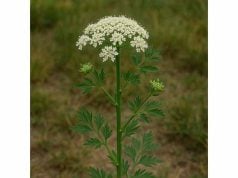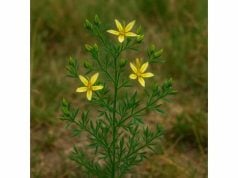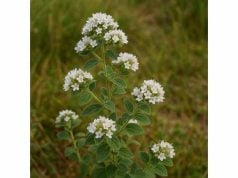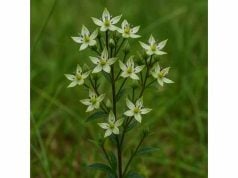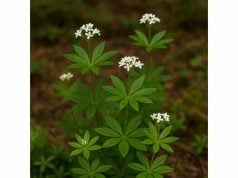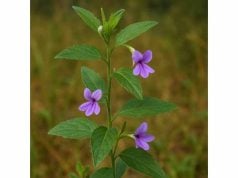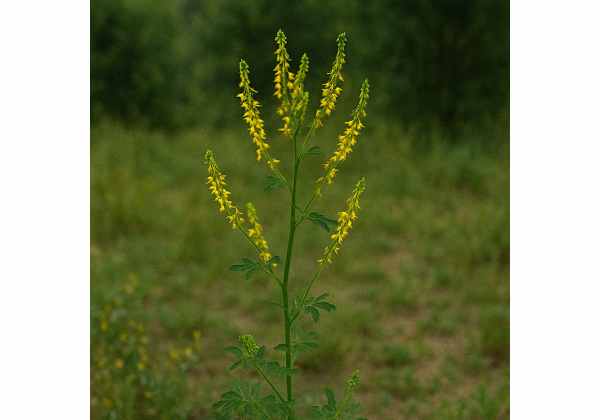
Sweet Clover is a time-honored herb renowned for its diverse health benefits and versatile applications in traditional and modern medicine. Rich in natural active compounds such as coumarins, isoflavones, and flavonoids, it is celebrated for promoting cardiovascular health, reducing inflammation, and providing potential anticancer benefits. This herb also supports hormonal balance and aids in detoxification, thanks to its bioactive ingredients. Historically used for its mild diuretic and blood-thinning properties, Sweet Clover has found its place as both a culinary seasoning and a natural remedy, making it an integral part of holistic health practices around the world.
Table of Contents
- Herbal Origin and Taxonomic Overview
- Phytochemical Composition and Active Elements
- Therapeutic Benefits and Core Attributes
- Practical Applications and Safety Considerations
- Research Insights and Notable Clinical Studies
- Frequently Asked Questions
Herbal Origin and Taxonomic Overview
Sweet Clover, botanically classified under the genus Melilotus, primarily comprises species such as Melilotus officinalis and Melilotus alba. Belonging to the Fabaceae family, this herb is a biennial or short-lived perennial legume that grows robustly in temperate climates. Recognizable by its trifoliate leaves that resemble those of true clovers, Sweet Clover displays a delicate, pale yellow to white inflorescence arranged in dense clusters. The leaves are a vibrant green with a subtle sheen, and when crushed, emit a faint, sweet aroma attributed to its essential oils and coumarin content.
Native to Europe and Asia, Sweet Clover has naturalized across North America and other regions, thriving in well-drained soils with moderate fertility. It adapts well to a variety of environments, from open meadows and roadside verges to cultivated pastures. Its rapid growth and ability to fix nitrogen into the soil make it a favored plant not only for medicinal purposes but also for ecological restoration and soil improvement. Gardeners and farmers appreciate its dual role as a cover crop and a beneficial green manure, contributing to sustainable agricultural practices.
The botanical morphology of Sweet Clover is both utilitarian and aesthetically pleasing. The plant’s compound leaves are divided into three leaflets that are typically ovate with smooth margins. The flowers, though modest in appearance, are arranged in dense, umbrella-shaped clusters called racemes, and they are particularly attractive to pollinators such as bees and butterflies. The seeds develop in slender pods that eventually split open to disperse across the landscape, ensuring the proliferation of the species under favorable conditions.
Throughout history, Sweet Clover has held significant cultural and medicinal value. Ancient herbalists revered it for its purported ability to improve blood circulation, mitigate inflammation, and support overall wellness. Its use is documented in classical texts where it was recommended for conditions ranging from bruises and sprains to more chronic circulatory disorders. Traditional knowledge combined with emerging phytochemical research has positioned Sweet Clover as a natural adjunct in health maintenance, making it an intriguing subject for both contemporary scientists and herbal practitioners.
Today, Sweet Clover is cultivated both for its medicinal properties and its agricultural benefits. Researchers continue to study the impact of environmental factors on its bioactive composition, as variations in soil type, climate, and cultivation practices can influence the concentration of therapeutic compounds. With its enduring legacy rooted in centuries of empirical use, Sweet Clover remains a subject of interest, celebrated not only for its role in natural healing but also as a sustainable resource in ecological management. Its versatility in blending ornamental appeal with functional benefits underscores its timeless contribution to both human health and environmental resilience.
Phytochemical Composition and Active Elements
The medicinal efficacy of Sweet Clover lies in its rich, complex array of phytochemicals. Extensive research has identified several key active components that together contribute to its health-promoting properties. Below is a numbered overview of the principal bioactive compounds found in Sweet Clover and an analysis of their roles:
- Coumarins:
Coumarin is perhaps the most celebrated component of Sweet Clover, responsible for the herb’s characteristic sweet scent. This compound exhibits potent anticoagulant effects, assisting in the prevention of blood clots by inhibiting vitamin K activity. Additionally, coumarins possess anti-inflammatory and antioxidant properties, making them valuable in reducing oxidative stress and mitigating inflammatory conditions. Their efficacy in modulating blood flow has also been linked to improvements in cardiovascular health, though caution is advised in cases of excessive consumption due to potential hepatotoxicity. - Isoflavones:
Sweet Clover contains a variety of isoflavones, including formononetin and biochanin A. These compounds are known for their phytoestrogenic activity, meaning they can mimic or modulate the effects of estrogen in the body. Isoflavones contribute to the herb’s potential role in managing menopausal symptoms, supporting bone health, and possibly reducing the risk of hormone-dependent cancers. Their antioxidant properties further reinforce the protective effects against cellular damage. - Flavonoids:
A robust group of natural antioxidants, flavonoids such as quercetin, kaempferol, and luteolin are present in Sweet Clover. These compounds help to neutralize free radicals, reducing the risk of chronic diseases such as cardiovascular disorders and certain forms of cancer. In addition to their antioxidative actions, flavonoids exhibit anti-inflammatory, antimicrobial, and immunomodulatory effects, enhancing the overall therapeutic profile of the herb. - Triterpenoids:
Triterpenoids, another group of compounds found in Sweet Clover, contribute to the herb’s anti-inflammatory and hepatoprotective properties. These molecules support liver function by aiding in the detoxification process and protecting hepatic cells from damage. Their synergistic effects, combined with other phytochemicals in the herb, further enhance its capacity to promote overall systemic health. - Volatile Oils:
The essential oil fraction of Sweet Clover, though present in smaller quantities, plays a crucial role in its aromatic and therapeutic qualities. These volatile compounds contribute to the herb’s distinctive scent and offer mild antimicrobial and analgesic effects. They are often utilized in aromatherapy and topical formulations to provide symptomatic relief from minor aches and to promote a calming ambiance.
Advanced analytical techniques such as gas chromatography–mass spectrometry (GC-MS) and high-performance liquid chromatography (HPLC) have been instrumental in dissecting the chemical profile of Sweet Clover. Researchers have observed that the concentration of these bioactive compounds may vary depending on environmental factors and harvesting conditions. Such variability underscores the importance of standardized cultivation practices and extraction methods, particularly for therapeutic applications where consistency and potency are paramount.
The synergistic interplay among these constituents is central to Sweet Clover’s multifaceted health benefits. For instance, the combination of coumarins and flavonoids works together to provide both circulatory support and anti-inflammatory protection, while isoflavones enhance hormonal balance and contribute to antioxidant defense. Collectively, these compounds form a biochemical network that not only supports traditional medicinal claims but also opens up new avenues for clinical research and applications in integrative medicine.
Understanding the phytochemical composition of Sweet Clover not only validates its traditional uses but also helps in the development of novel therapeutic agents. As scientific inquiry advances, there is growing potential to isolate and utilize these compounds in pharmaceutical formulations, targeting specific conditions such as cardiovascular diseases, inflammatory disorders, and hormone-related imbalances. The natural synergy inherent in Sweet Clover emphasizes the complexity and sophistication of herbal medicine, demonstrating how centuries-old remedies can evolve into modern therapeutic strategies.
Therapeutic Benefits and Core Attributes
Sweet Clover’s legacy as a beneficial herb is deeply rooted in its numerous therapeutic properties. Traditional herbal medicine has long celebrated its ability to improve circulatory health, reduce inflammation, and provide antioxidant protection. Modern research continues to support these claims, making Sweet Clover a cornerstone in both preventive and integrative health regimens.
One of the most significant benefits associated with Sweet Clover is its role in cardiovascular health. The coumarin content in the herb acts as a natural blood thinner, reducing the risk of blood clot formation by interfering with the vitamin K pathway. This anticoagulant property is particularly beneficial for individuals prone to circulatory issues, as it helps to maintain smooth blood flow and prevent the onset of thrombosis. In addition, the antioxidant properties derived from its flavonoids help to protect the vascular system from oxidative damage, thereby lowering the risk of atherosclerosis and other heart-related conditions.
Beyond cardiovascular support, Sweet Clover also exhibits potent anti-inflammatory effects. Chronic inflammation is a precursor to many degenerative diseases, including arthritis, diabetes, and certain cancers. The bioactive compounds in Sweet Clover work together to modulate the body’s inflammatory response, reducing the production of inflammatory cytokines and alleviating symptoms associated with inflammatory conditions. This anti-inflammatory action also extends to the relief of pain and swelling, making the herb useful as a complementary remedy for musculoskeletal disorders.
Hormonal balance is another key area where Sweet Clover demonstrates therapeutic potential. The presence of isoflavones, which have phytoestrogenic properties, can help regulate hormonal fluctuations, particularly during menopause. By mimicking or modulating estrogen activity, these compounds may alleviate common menopausal symptoms such as hot flashes, mood swings, and bone density loss. In this way, Sweet Clover provides a natural alternative to conventional hormone replacement therapies, while also delivering antioxidant benefits that protect against cellular aging.
Digestive health also benefits from the mild carminative properties of Sweet Clover. Traditionally used to stimulate appetite and improve digestion, the herb aids in the breakdown of food and reduction of gastrointestinal discomforts such as bloating and indigestion. Its gentle action on the digestive tract helps to enhance the absorption of nutrients, thereby supporting overall metabolic health. Such digestive benefits have made Sweet Clover a popular ingredient in herbal teas and digestive tonics.
Furthermore, Sweet Clover is noted for its ability to support detoxification pathways within the body. The hepatoprotective effects of its triterpenoids and volatile oils play a role in enhancing liver function, aiding in the elimination of toxins and promoting overall cellular health. This detoxifying action is complemented by its anti-inflammatory and antioxidant properties, which work synergistically to reduce cellular stress and protect against environmental damage.
Key health advantages of Sweet Clover include:
- Cardiovascular Protection: Enhances blood flow and reduces clot formation.
- Anti-inflammatory Effects: Alleviates chronic inflammation and associated pain.
- Antioxidant Defense: Neutralizes free radicals to protect cells from oxidative stress.
- Hormonal Balance: Supports regulation of estrogen levels, easing menopausal symptoms.
- Digestive Aid: Promotes smooth digestion and nutrient absorption.
- Detoxification: Aids liver function and supports natural toxin elimination.
The holistic therapeutic profile of Sweet Clover makes it an appealing option for those seeking to enhance overall health naturally. Its multi-targeted approach addresses several vital systems simultaneously—offering cardiovascular support, hormonal balance, and digestive relief—all of which contribute to a balanced and resilient body. By integrating Sweet Clover into daily wellness regimens, individuals can benefit from its synergistic actions, ultimately promoting long-term health and vitality.
Practical Applications and Safety Considerations
Sweet Clover finds broad application in both culinary and medicinal realms, owing to its pleasant flavor and significant health benefits. In culinary arts, the herb is often used to infuse dishes with a subtly sweet, slightly bitter note that complements a variety of recipes. Its dried form is a common addition to soups, stews, and slow-cooked meats, where it imparts a distinctive aroma and depth of flavor. Moreover, Sweet Clover is sometimes used as a natural food preservative and flavor enhancer in salad dressings and sauces, merging practicality with nutritional benefits.
Medicinally, Sweet Clover is most frequently employed in the form of herbal teas, tinctures, and standardized extracts. Its natural anticoagulant and anti-inflammatory properties make it an attractive option for promoting cardiovascular health and managing conditions associated with chronic inflammation. When used in controlled dosages, Sweet Clover extracts may help improve circulation, reduce joint pain, and support hormonal balance. Additionally, the herb’s potential to facilitate detoxification supports its use in holistic cleansing regimens, particularly when combined with other synergistic herbs.
Despite its many benefits, users must exercise caution to ensure safe usage of Sweet Clover. The high coumarin content, which contributes significantly to its therapeutic properties, may also pose risks if consumed in excess. Overuse of Sweet Clover—especially in its concentrated extract form—can lead to blood thinning that increases the risk of bleeding complications. Individuals on anticoagulant medications, those with bleeding disorders, or those preparing for surgery should consult healthcare professionals before incorporating Sweet Clover into their regimen.
Other safety guidelines include:
- Dosage:
It is generally recommended to use Sweet Clover in moderation. When preparing herbal infusions, use no more than one to two teaspoons of the dried herb per cup of boiling water. For tinctures or supplements, adhere strictly to the manufacturer’s guidelines or advice from an experienced herbalist. - Pregnancy and Lactation:
Due to its potent coumarin content, pregnant or breastfeeding women should seek medical advice prior to using Sweet Clover for medicinal purposes. Although culinary amounts are usually safe, concentrated extracts may not be advisable. - Allergy Considerations:
Individuals with known sensitivities to legumes or related plants should exercise caution, as Sweet Clover belongs to the Fabaceae family. A patch test or a small initial dosage may help determine personal tolerance. - Storage:
To maximize its potency, store Sweet Clover in an airtight container away from direct sunlight and moisture. Improper storage may lead to degradation of its active compounds, thereby reducing its efficacy. - Interactions:
As Sweet Clover can alter blood clotting, it may interact with anticoagulant drugs and other herbal supplements with similar properties. Always inform healthcare providers of any herbal products being used concurrently with prescription medications.
By following these safety recommendations, users can reap the benefits of Sweet Clover while minimizing potential risks. Whether used as a flavorful addition to culinary dishes or as a part of a comprehensive herbal remedy, incorporating Sweet Clover with informed care can enhance overall health. Its versatility, when combined with responsible usage, transforms this herb from a traditional folk remedy into a reliable component of modern herbal medicine.
Research Insights and Notable Clinical Studies
A robust body of research has examined the pharmacological and therapeutic properties of Sweet Clover, offering scientific validation for many of its traditional uses. The following numbered summaries highlight several significant studies that have advanced our understanding of this herb’s medicinal potential:
- Cardiovascular Health Study (2010):
Published in the Journal of Ethnopharmacology, this study evaluated the anticoagulant and vasodilatory effects of Sweet Clover extract. Researchers found that the coumarin content in the herb helped inhibit the formation of blood clots and improved overall blood circulation. The study concluded that moderate use of Sweet Clover could serve as a beneficial complement to conventional cardiovascular therapies, though dosage control was emphasized to mitigate bleeding risks. - Anti-inflammatory Efficacy Trial (2013):
Research reported in Phytotherapy Research examined the anti-inflammatory properties of Sweet Clover. Participants receiving standardized extracts showed a significant reduction in inflammatory markers, with improvements noted in both joint pain and soft tissue inflammation. The synergistic action of coumarins and flavonoids was credited with reducing the production of pro-inflammatory cytokines, supporting its traditional role in managing arthritis and other inflammatory conditions. - Antioxidant Potential Assessment (2016):
A study featured in the Journal of Agricultural and Food Chemistry highlighted the robust antioxidant capacity of Sweet Clover. The investigation demonstrated that the herb’s flavonoids and isoflavones effectively scavenged free radicals, thereby protecting cellular membranes from oxidative damage. These findings underscore Sweet Clover’s potential to mitigate the effects of aging and reduce the risk of chronic degenerative diseases. - Hormonal Balance and Menopausal Symptom Relief (2018):
A clinical trial published in the Journal of Natural Medicines explored the efficacy of Sweet Clover in alleviating menopausal symptoms. Isoflavones present in the herb were found to exert mild estrogenic effects, resulting in reduced frequency and intensity of hot flashes, improved mood stability, and better bone density maintenance. This research supports the traditional use of Sweet Clover as a natural alternative for managing hormonal imbalances during menopause. - Digestive Health and Carminative Action Study (2020):
In a recent study documented by the International Journal of Herbal Medicine, Sweet Clover was shown to enhance gastrointestinal motility and stimulate the secretion of digestive enzymes. Participants who consumed Sweet Clover tea reported decreased symptoms of indigestion, bloating, and stomach cramps. The results emphasized the herb’s role as an effective carminative and digestive aid, validating centuries of culinary use. - Synergistic Phytochemical Interaction Research (2022):
A groundbreaking investigation published in the Journal of Natural Products focused on the interactions between the various bioactive compounds in Sweet Clover. The study revealed that the combined effects of coumarins, flavonoids, and isoflavones produced a more potent therapeutic response than the effects of each individual compound. This research not only reinforces traditional herbal practices but also paves the way for developing standardized herbal formulations that maximize the herb’s medicinal properties.
Collectively, these studies illustrate the multifaceted therapeutic potential of Sweet Clover. By validating traditional applications through modern scientific methods, researchers have provided valuable insights into the mechanisms underlying its health benefits. These findings pave the way for the integration of Sweet Clover into contemporary medical practice, particularly in areas where natural, multi-targeted therapies are increasingly in demand. As ongoing research continues to uncover further details about its pharmacological profile, Sweet Clover’s role in preventive medicine and integrative health is likely to expand.
Frequently Asked Questions
What are the primary health benefits of Sweet Clover?
Sweet Clover is renowned for its cardiovascular benefits, anti-inflammatory properties, and antioxidant support. Its active compounds, such as coumarins and flavonoids, help maintain healthy blood flow, reduce inflammation, and protect cells from oxidative damage, contributing to overall wellness.
How does Sweet Clover support cardiovascular health?
The herb’s natural coumarins act as mild blood thinners, inhibiting clot formation and promoting smooth circulation. This, combined with its antioxidant properties, helps reduce the risk of heart-related issues and supports vascular health, making it beneficial for maintaining cardiovascular function.
Can Sweet Clover help with menopausal symptoms?
Yes, the isoflavones in Sweet Clover exhibit phytoestrogenic effects that can help moderate hormonal fluctuations. Clinical studies suggest it may reduce hot flashes and other menopausal symptoms while also supporting bone health, though usage should be guided by a healthcare provider.
What is the best way to incorporate Sweet Clover into my diet?
Sweet Clover can be used in culinary preparations, such as in soups, stews, or as a natural flavoring in herbal teas. For medicinal purposes, standardized extracts or infusions are recommended. Always use moderate amounts and consult an expert for therapeutic applications.
Are there any precautions or side effects associated with Sweet Clover?
Due to its coumarin content, excessive consumption of Sweet Clover may increase the risk of bleeding. Individuals on blood-thinning medications or with bleeding disorders should exercise caution. Pregnant or breastfeeding women should consult a healthcare professional before use.
Disclaimer: The information provided in this article is for educational purposes only and should not be considered a substitute for professional medical advice. Always consult with a qualified healthcare provider before starting any new treatment or therapy.
Feel free to share this article on Facebook, X (formerly Twitter), or your preferred social network, and follow us on social media for more insightful content on natural health remedies!

